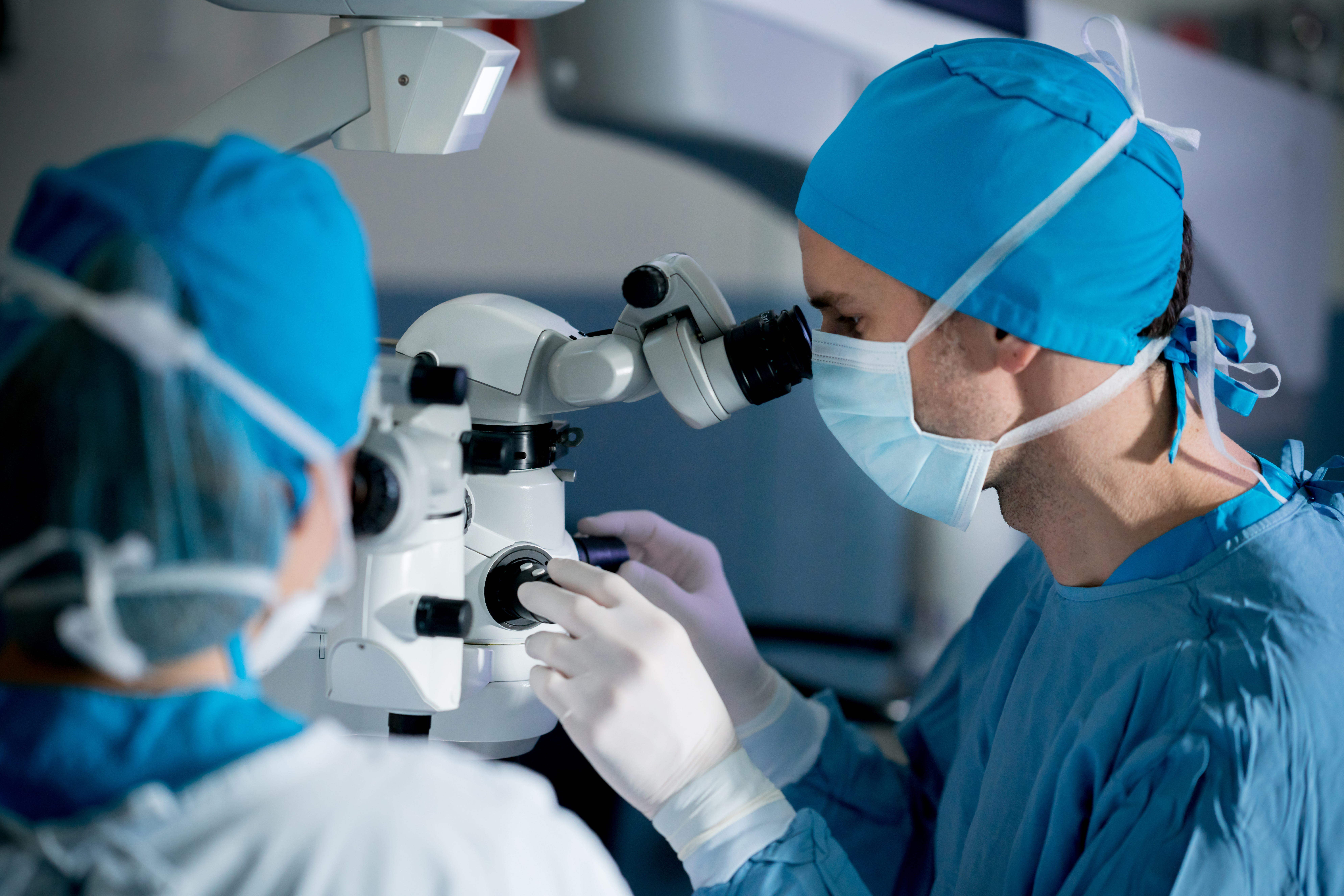
Unlocking the true potential of ophthalmic innovation is increasingly leading to eye-opening discoveries
Ophthalmic innovation continues to provide greater insights into eye conditions – but it is also unlocking an ever-expanding array of discoveries indicating potential issues elsewhere in the human body
NHS Scotland’s drive for new breakthroughs and high-quality, inclusive eyecare during this pivotal time of recovery and reform can undoubtedly improve patient outcomes and deliver new treatment options.
Fundamentally, technology is transforming ophthalmology and NHS Scotland’s workforce can take a lead on grasping its possibilities by identifying new avenues of targeted innovation that support strengthening and meaningful change in this priority area.
However, an NHS eye examination in Scotland is already more than just a sight test – it provides a general eye health check that can detect early signs of sight-threatening conditions and some general medical conditions including diabetes, high blood pressure, cardiovascular disease, and more.
Researchers at the University of Edinburgh now believe that 3D eye scans – using a technology called optical coherence tomography (OCT) – could help to track the often symptom-free early onset of kidney disease and then accurately predict its progression.
They noted that the eye is the only part of the body where it is possible to view its tiniest blood vessels, often affected in kidney disease.
The researchers therefore utilised highly magnified images to identify retinal changes, resulting in the conclusion that doing so facilitates a fast, non-invasive method of monitoring kidney health which supports early diagnosis.
Current screening tests are unable to detect the condition until half of the kidney function has been lost, but OCT scanners use light waves to quickly create a cross-sectional picture of the retina.
With this technology to hand and by studying OCT images of patients at different stages, alongside healthy volunteers, the university team found that patients with thinner retinas were suffering chronic kidney disease and this thinning progressed as kidney function declined.
Conversely, the researchers noted that those who received a kidney transplant experienced a rapid thickening of the retina after surgery.
Dr Neeraj Dhaun, Professor of Nephrology at the University of Edinburgh’s Centre for Cardiovascular Science, concluded that “the eye is a useful window into the kidney” and the hope now is that the research will “help identify more people with early kidney disease – providing an opportunity to start treatments before it progresses” while encouraging lifestyle changes that could reduce the risk of health complications.
Going forward, such discoveries hold huge promise for further fostering collaborative partnerships that translate research, development and innovation (R,D&I) into everyday ophthalmic practice with patients standing to ultimately benefit from the meeting of NHS, academia, and industry.
The future possibilities are incredible – from artificial intelligence (AI) applications helping to predict a range of ophthalmic conditions such as age-related macular degeneration (AMD) and diabetic retinopathy, to further progress in telehealth that is already allowing patients to remotely send images of the eye to their doctor to triage, helping to decide who needs to be seen in person.
It all goes hand in hand with the development of smarter, more efficient working practices in order to do more with less. Effective monitoring is one such area with an example being the ability to analyse the daily fluctuations of intraocular pressure (IOP) for detecting glaucoma through innovations such as smart contact lenses which can transmit data from the eye to a mobile phone or cloud system. That may be some way off for the NHS but the technology is already there.
It is clear ophthalmology is an area ripe for innovation and could lead to real advance in patient treatment and care, but also early diagnosis of other conditions. Formal NHS partner InnoScot Health is seeking forward-thinking ophthalmic solutions that can help support the health service to strengthen and make meaningful change in this priority area of its recovery plan.
We believe that the health service’s expert ophthalmologists, alongside those in support roles, are best placed to identify where unmet medical needs and bottlenecks in clinical ophthalmology lie while potentially offering key solutions in a rapidly evolving area.
Encouraging NHS Scotland’s diverse workforce to come up with new ideas that achieve better outcomes in pressured ophthalmology is vital and at the heart of InnoScot Health’s latest innovation call.
The call offers a package of support to health and social care staff, including advice and guidance in such areas as intellectual property protection, regulation, funding, project management, and commercialisation, to a value of £25,000 initially.
Forward-thinking staff can be instrumental in making a vital contribution to how the health service adapts through targeted ophthalmic innovation for an eye-opening future.

Our Support
The behaviours of NHS Scotland’s 160,000-strong workforce will influence how the service mitigates and adapts to ophthalmic backlogs and heightened pressures; and so, encouraging this diverse workforce to come up with new ways of working is vital.
The package of support for health and social care staff with ideas to support NHS Scotland includes £25,000 of initial funding, regulatory support, project management and the innovation expertise of InnoScot Health.
Chat